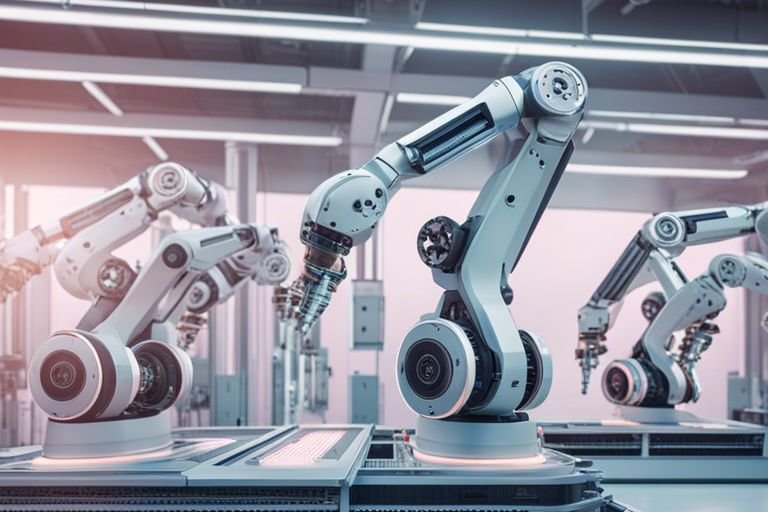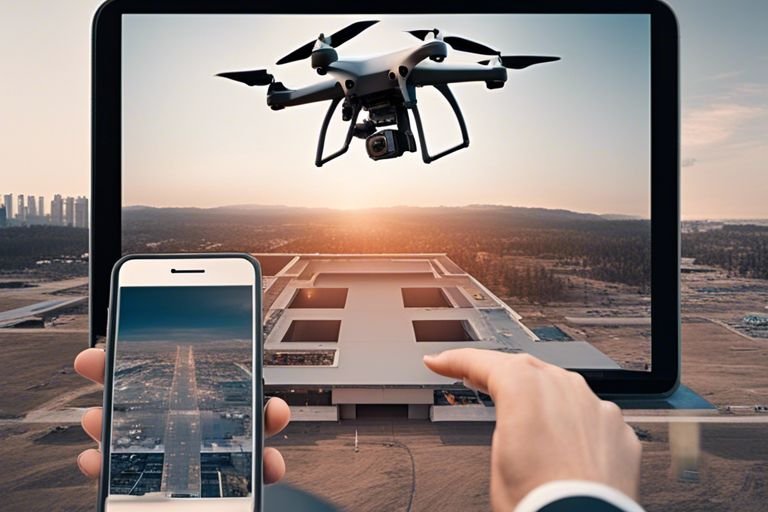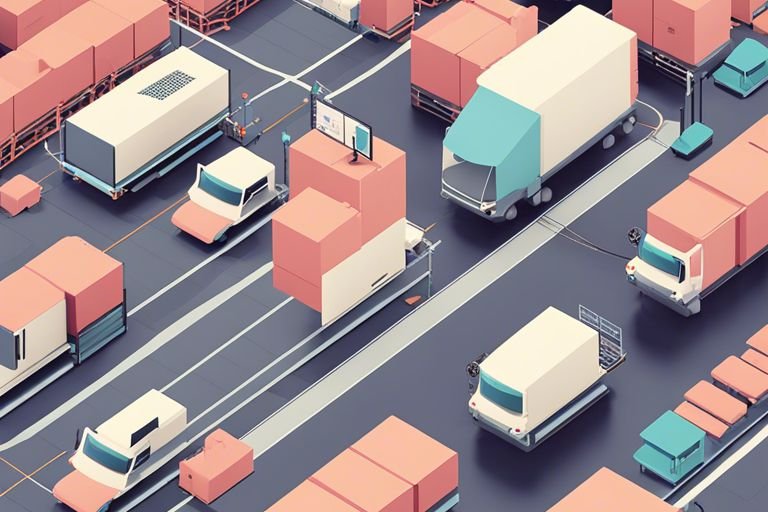What role does AI play in the development of smart cities and infrastructure?

As our world becomes increasingly interconnected, artificial intelligence (AI) is playing a crucial role in the development of smart cities and infrastructure. The integration of AI technologies in urban planning and infrastructure management is revolutionizing the way we live, work, and interact with our environment. From traffic management and energy efficiency to waste management and public safety, AI is driving the transformation of cities into smarter, more efficient, and sustainable urban spaces. In this blog post, we will explore the various ways in which AI is reshaping the development of smart cities and infrastructure, and the potential benefits and risks associated with this transformation.
Key Takeaways:
- Efficient urban management: AI can help smart cities and infrastructure by automating traffic management, energy usage, waste management, and other essential urban services, leading to more efficient and sustainable urban management.
- Improved public safety: AI can contribute to the development of smart cities by enhancing public safety through predictive analytics, monitoring and responding to crime and emergency situations in real-time, and improving overall security and surveillance systems.
- Enhanced citizen experience: AI can play a pivotal role in creating a more connected and personalized urban environment by leveraging data and technology to deliver innovative services such as smart transportation, smart healthcare, and personalized recommendations for citizens, improving their overall quality of life.
AI-Driven Urban Planning and Design
Obviously, the use of AI in urban planning and design has revolutionized the way cities are developed. AI technology takes into account various factors such as population growth, traffic patterns, environmental impact, and infrastructure needs to create efficient and sustainable urban spaces. By leveraging AI algorithms, urban planners and designers can make informed decisions that optimize the use of limited resources and ensure the well-being of the city’s inhabitants.
Data-Driven Decision Making
AI enables data-driven decision making by analyzing large volumes of data to identify trends and patterns that would be impossible for humans to discern. By utilizing AI, you can harness the power of predictive analytics to anticipate future needs and challenges, allowing for proactive planning and resource allocation. This not only improves the efficiency of urban planning processes but also enhances the overall quality of life for city residents. With AI, you can make decisions based on real-time data, ensuring that your city’s infrastructure is continuously adapting to meet the changing needs of its inhabitants.
Automated Urban Simulation
Another crucial aspect of AI-driven urban planning and design is automated urban simulation. Through advanced simulation tools powered by AI, you can model various scenarios and evaluate their potential impact on the city’s infrastructure. This allows you to test different design options and assess their implications before implementation, reducing the risk of costly mistakes and negative outcomes. The ability to simulate and analyze urban environments in a virtual space not only saves time and resources but also enables you to create more resilient and adaptable infrastructure that can withstand unforeseen challenges.
AI in Infrastructure Management
One of the key roles that AI plays in the development of smart cities and infrastructure is in the management of various infrastructure systems. AI technologies can help in the efficient and effective management of infrastructure assets, leading to improved performance and reduced operational costs. Let’s take a closer look at how AI is transforming infrastructure management.
Predictive Maintenance
AI technologies enable predictive maintenance of infrastructure assets, such as bridges, roads, and buildings. By leveraging data from sensors and other monitoring devices, AI can analyze the condition of these assets and predict when maintenance or repairs are needed. This proactive approach helps you to identify potential issues before they escalate into major problems, reducing the risk of infrastructure failures and improving overall safety.
Traffic Optimization and Control
AI plays a crucial role in optimizing traffic flow and controlling congestion in smart cities. Through the use of intelligent traffic management systems, AI can analyze real-time traffic data, adjust traffic signals, and provide alternative routes to minimize congestion and improve the overall flow of traffic. This not only reduces your commute time but also contributes to lower fuel consumption and emissions, creating a more sustainable and efficient urban environment.
Enhancing Public Services with AI
For cities to truly become smart, they need to be able to deliver efficient and effective public services to their residents. AI plays a crucial role in enhancing public services by optimizing processes and improving overall service delivery. This includes areas such as energy management, waste management, public transportation, and more.
Energy Management
With the help of AI, cities can implement smart energy management systems that monitor and optimize energy usage in real-time. This technology allows you to identify areas of high energy consumption and implement measures to reduce wastage. Additionally, AI predictive analytics can forecast energy demand, enabling more efficient distribution and usage of energy resources. By integrating AI into energy management, cities can significantly reduce their carbon footprint and strive towards sustainable energy practices.
Waste Management and Smart Recycling
AI can revolutionize waste management and smart recycling by enabling the implementation of intelligent waste collection systems. These systems utilize sensors and data analysis to optimize collection routes, thus reducing fuel consumption and lowering overall operational costs. Moreover, AI-powered sorting technologies can improve recycling efficiency by identifying and segregating different types of waste materials. By incorporating AI into waste management practices, cities can minimize environmental impact and promote a more sustainable approach to waste disposal.

Challenges and Ethical Considerations
Notwithstanding the potential benefits of AI in smart city development, there are also various challenges and ethical considerations that must be carefully addressed. As smart city infrastructure becomes more reliant on AI, it raises concerns about privacy, security, and socioeconomic impacts that need to be carefully managed.
Privacy and Security Concerns
As AI becomes more integrated into smart city infrastructure, the collection and analysis of vast amounts of data raise significant privacy concerns. Your personal information, such as your location, habits, and preferences, could be at risk of being exposed or misused. Additionally, the interconnected nature of smart city technology creates vulnerabilities that could be exploited by malicious actors, leading to potential cybersecurity threats and breaches. It is crucial to implement strong data protection measures and robust security systems to safeguard your privacy and prevent unauthorized access to sensitive information.
Socioeconomic Impacts
The adoption of AI and smart technologies in urban development can have significant socioeconomic impacts on communities. While these advancements have the potential to improve efficiency and quality of life, they also raise concerns about job displacement and inequality. As more processes become automated, certain job sectors may experience a decline in employment opportunities, disproportionately affecting specific groups. It is essential to consider the potential socioeconomic disparities that may arise from the implementation of AI in smart cities and to actively work towards mitigating these impacts through inclusive and equitable strategies.
Conclusion: The Impact of AI on Smart Cities and Infrastructure
With these considerations in mind, it is clear that AI plays a pivotal role in the development of smart cities and infrastructure. Through its ability to analyze vast amounts of data and make real-time decisions, AI enables cities to become more efficient, sustainable, and responsive to the needs of their residents. From managing traffic flow to optimizing energy usage, AI has the potential to revolutionize the way cities function and evolve. As you continue to explore the intersection of technology and urban development, it is important to recognize the profound impact that AI can have on shaping the cities of the future.



